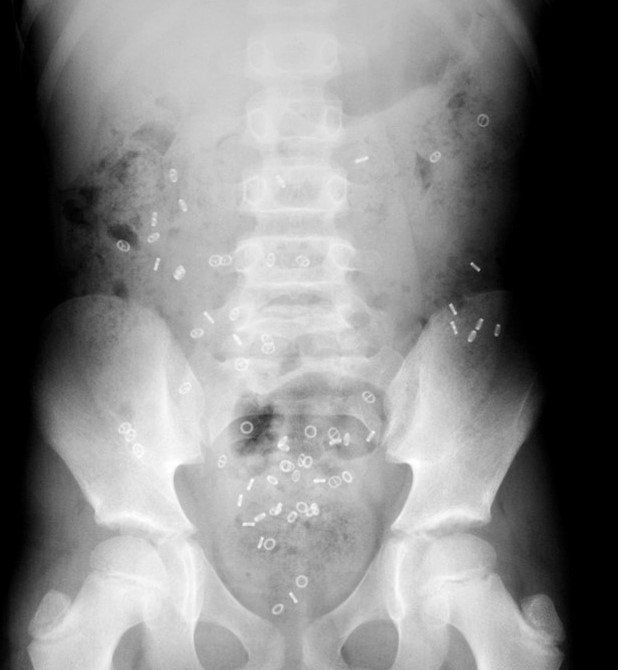I see a lot of children with constipation. The paediatric research literature suggests that up to 25% of visits to a paediatric gastroenterology clinic are related to constipation in children.
I really do feel that the impact it has on quality of life, and the strain it can place on a child and family is huge and often under-recognised.
Some of the positive feedback I get from families includes how treating it properly has radically improved their child's day to day wellbeing.
It is important to realise from the outset that treatment may take a long time. Plenty of patience and encouragement is needed to establish positive change.
What is constipation?
Recent studies have shown that often there is a discrepancy between patient and doctors perceptions of what represent constipation related symptoms.
It is therefore really important to understand what your child is experiencing. Most people associate it with difficulties with pooing and less frequent bowel motions. It is true that these are some of the features of constipation but there are others that may not always be recognised as such.
I will ask both you and your child, when they are able to tell me, about their symptoms, to get a better understanding of the situation. A lot of children (and adults) find talking about poo to be embarrassing. I use fun poo charts to help lessen any of those feelings.
Sometimes it may be necessary to complete a children's bowel diary so that we can all have a better understanding of your child's bowel habits.
How to diagnose constipation in children and babies ?
Various criteria are used to help diagnose constipation. Those from the Rome Foundation are often used. This is a group of internationally recognised specialists in the field of neurogastroenterology.
This is a branch of gastroenterology that deals with the gut and its own nervous system. The gut has its own mini-brain so to speak. This mini 'gut-brain' is hard-wired to the brain and spinal cord.
The gut may experience disturbance of its specialised movement patterns (motility) or its sensitivity (sensation).
Common problems such as constipation and irritable bowel syndrome, for example, are counted amongst these so-called disorders of gut-brain interaction.
The latest iteration of the criteria used to diagnose this class of GI disorder is the Rome 4 Criteria and can be found here.
Features of constipation in children include:
- fewer than 3 poos per week
- hard, painful or difficult to pass poos
- large diameter poos that can block the toilet
- at least one episode of poo leakage 'accident' per week
- history of stool withholding / or characteristic stool withholding posture (holding on to poo not letting it go)
- presence of a hard faecal mass on examination
Abdominal pain or tummy ache can be significant as can pain in the bottom area during the passage of poo.
Sometimes 'poo accidents' happen and these can occasionally be mistaken for diarrhoea.
Some children may take up certain postures when appearing to poo, there is even talk of a 'poo dance'.
During the course of our discussion, it becomes more clear that this represents efforts 'to hold on to the poo'.
During the clinical examination, one can sometimes feel a hard mass of built-up poo within the colon or rectum.
A thorough clinical history and physical examination are usually enough to make a diagnosis of this very common condition.
Often I will ask you and your child to complete a bowel diary over two weeks to have a better understanding of bowel habits. Click here for a children's bowel diary PDF to print.
It is increasingly recognised that there can be an overlap in symptoms of irritable bowel syndrome (IBS) and constipation.
What causes constipation?
This is a very frequently asked question by parents.
In the vast majority of children, there is no underlying cause to be found. No anatomical blockages, no inflammation or other metabolic cause. In such a scenario (approx 90-95% of cases) it is known as functional constipation. It is common for it to occur at various points in childhood.
Are investigations needed?
In the vast majority of cases, It is rare to require any investigations. Don't worry as I will guide this part of the journey. I tend to keep any investigations to the minimum and only use them if they are of some benefit.
If certain so-called ‘alarm features’ are picked up in the history or found during the examination some investigations may become necessary.
Blood tests for certain diet-related or thyroid problems are sometimes used.
It may be helpful to have some imaging, particularly an x-ray of the tummy, often as part of a shape study (as in the image above), to look at colonic transit time, one crude marker of how the colon is functioning.
For more on the doses of radiation received during an x-ray examination and the risks associated with these, please click here.
Very rarely more specialised tests such as anorectal manometry may be needed.
Anorectal manometry is a test during which a small balloon is gently inserted via the back passage into the rectum. It is gradually inflated, to mimic a poo having reached the rectum and causing it to stretch. This triggers off signals via the nervous system. The usual or normal response is for the bottom sphincter to relax. This is an area of specialised smooth muscle that is generally always contracted and under involuntary control, so as to keep one continent. It will relax in response to a stimulus such as a poo entering the rectum and stretching it or a balloon being inflated there mimicking the natural process. One of the significant diseases that can affect this process is Hirschsprung's disease.
The image shows an abdominal x-ray performed as part of a colonic transit study. Also known as a shape study, I occasionally use this investigation in the management of childhood constipation. The number of shapes and their distribution in the colon at the time of the x-ray gives an indication of the transit time of the gut. Transit is one of the main functions of the colon or large bowel, and as a crude measure of transit time, a shape study can be used to distinguish between different sub-types of constipation.
It is not used routinely in the diagnosis or management of constipation but in some scenarios can be useful.
How to treat children's constipation
Most children with constipation are managed expertly by their family doctor or paediatrician. Occasionally in more difficult to manage situations a paediatric gastroenterologist may be involved.
This is particularly so when the issue is seemingly very severe, or long-standing, and often when it also involves soiling or poo accidents. This is something I see a lot of in my clinics. The majority of children who soil or have poo accidents have underlying constipation.
Once it is clear that constipation is the main issue, the treatment plan consists of advice and education about:
- bowel function
- implementing good toileting routines
- a balanced healthy diet
- adequate fluid and fibre intake
- the use of various laxatives
and all with plenty of patience and encouragement using reward systems such as sticker charts in younger children. Making a trip to the toilet a less scary, pleasant experience is the aim. Fun activities, even singing can help to relax and allow a less stressful pooing experience. From personal experience, Frozen's 'Let it go' seems a good choice.
Milder cases will settle sooner and other more moderate to severe cases may need a more intense approach over a long period of time.
Resources for parents and families
There are plenty of excellent resources that I recommend to the families of patients that I see to help alongside recommended treatment plans.
These include an excellent book called the Ins and Outs of poop and the ERIC website.
Please have a look at the useful resources page for more.


